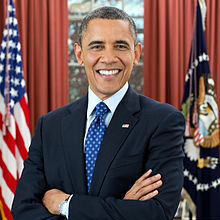WASHINGTON – My beloved grandfather dreamed all his life of getting to America. He was certain that the streets were paved with gold and all you had to do was bend and scoop up some. But even he would be amazed at the bizarre argument about America’s defense assistance to Israel. Is the money Uncle Sam is giving us a lot more than we got until now, or only a little more? Perhaps we could have gotten more? We sound like beggars who continue to delude themselves, and not just about the money.
So first of all, we’re not getting dollars from America. The military assistance to Israel is a U.S. administration subsidy for America’s defense industries. Israel is receiving the right to purchase American planes, missiles and bombs at American taxpayers’ expense, all due to complex American political considerations.
But wonder of wonders – even the United States has budgetary constraints and there are many, many people here who think there are better uses for the money than giving it to Israel to buy weapons in deals made by lobbyists. Given all this, the fact that Israel managed to extract such a large American commitment for a decade shouldn’t be taken for granted.
Who can guarantee that the next administration, or the one after that, would be prepared to give Israel nearly $4 billion a year to go shopping? The agreement creates certainty and stability for many years and is not to be taken lightly.
So why the bitter argument? Why are people trying to prove that the agreement is bad? There’s something else at issue here; the fear that if we concede that the agreement is an achievement, given the American reality, then we’d be admitting that Prime Minister Benjamin Netanyahu succeeded; that there really is no American pressure on Israel. And that, as a result, there is no chance for a diplomatic solution to the Israeli-Palestinian conflict. Nothing could be more ridiculous.
The fact that Israel achieved such an agreement despite the sour conflict with U.S. President Barack Obama doesn’t mean that Netanyahu was right. And the thought so deeply rooted within us that without any outside pressure all is lost is folly – a distorted fixation from which we must free ourselves. The fact that there is no American pressure – and indeed there is none or even the hint of any – doesn’t mean there is no chance for a diplomatic solution. It certainly doesn’t mean that Netanyahu’s policies are correct.
All it means is that the United States is preoccupied with other conflicts, that Obama’s foreign policy isn’t much of a hit, that there are strong forces in Washington preventing such pressure and that we shouldn’t waste any time waiting for the next Jimmy Carter.
“A perception held for many years has collapsed recently,” Nir Baram tweeted recently. It’s unfortunate that its followers continue to declaim, as if hypnotized, that ‘The international community will not support the occupation and will force Israel to end it.’ It would be better to sober up from this nonsense that America has a role in pressuring Israel to reach an agreement.”
Baram is right. Although the world does not support the occupation, it’s not doing anything to force Israel to end it. Because who is “the world” exactly? China? Russia? Perhaps Germany and France, who are dealing with a sea of troubles flowing toward them from the Middle East? Perhaps the world is the ascendant Donald Trump?
The real question is, since when does what “the world” says have to determine what’s right for Israelis who want to effect change? Must we stop seeking a diplomatic solution because Obama has given up? Does the occupation become more moral because Hillary Clinton is avoiding it like the plague?
It’s possible that there’s something good about the world leaving our conflict alone. Perhaps we’ll finally understand that it’s ours, and it doesn’t belong to John from Nebraska or Tania from Alaska. Incidentally, this was always the case; now it’s just clearer. If we stop believing that someone else will solve our problems for us, perhaps we’ll be able to do it ourselves.
Published in "Ha'aretz"

